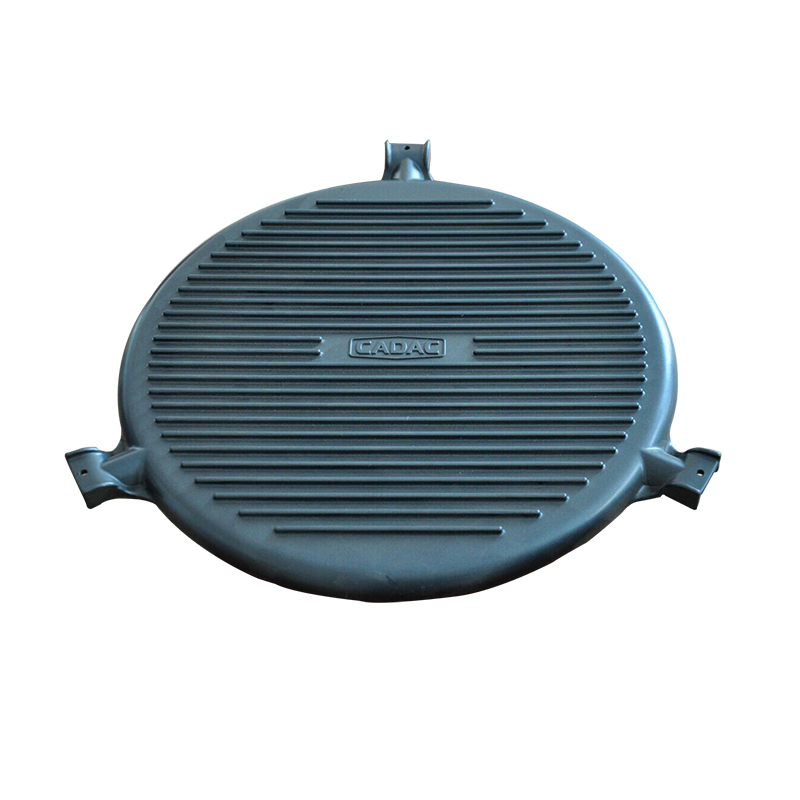Advantages of Machined Parts Over Molded Parts: Making the Right Choice
The realm of machined parts is vast and versatile, and it's no surprise given the array of benefits they offer. CNC machining provides a suitable solution for a wide spectrum of metals and plastics, facilitating the rapid and cost-effective production of machined parts without the need for elaborate tooling.
We offer a seamless avenue to acquire machined parts and prototypes at competitive prices and with short lead times. Our expertise spans various industries, prompting the question: when should one opt for machined parts over molded parts? While this decision might seem clear-cut at times, it can also present complexities.
Understanding Machined Parts
Machined parts are creations stemming from subtractive cutting processes, often carried out by CNC mills, CNC lathes, CNC grinders, CNC EDMs, or even manual mills and lathes. These parts hold a significant place in rapid prototyping and mass production.
In manufacturing, machined parts contrast with molded parts, cast parts, forged parts, extruded parts, and 3D printed parts, all forged through distinct techniques. It's important to note that the term "machined part" could describe a component produced partially using these methods but finalized through machining. (An example is a cast metal part with machined features.)
Machined parts might also be referred to as CNC machined parts or CNC parts if they've undergone fabrication using digital machining centers.
Outlined below are six compelling reasons why machined parts often outshine their molded counterparts:
-
No Minimum Order Quantity (MOQ): The standout advantage of machined parts is the ability to procure them without being constrained by minimum order quantities. For molded parts, the creation of metal tooling is a time-consuming and costly process, often reaching tens of thousands of dollars. In contrast, machined parts are directly cut from blank workpieces, making it economically viable to order small quantities or even singular parts. While massive quantities might sway the balance towards molding, machining is unparalleled in providing high-quality parts without an MOQ, making it a prime choice for smaller enterprises, limited production runs, and prototyping.
-
Effective Prototyping Solution: Some companies opt for injection molded prototypes, but this path is usually reserved for larger corporations due to the exorbitant cost of tooling. Machined parts are a feasible and cost-effective alternative for prototypes as they can be produced as one-offs. The swiftness of machining, in contrast to molding, enables research and development departments to swiftly iterate multiple part versions, subject them to requisite testing and evaluations, and then proceed to production. Machining's material versatility further empowers companies to order parts in diverse metal alloys or composite plastics for rigorous performance assessment.
-
Design Freedom: Machined parts boast remarkable diversity in terms of shape and size. Unlike molded design constraints, such as thin walls and tapering, CNC machining permits parts that can be thick and robust, while also accommodating fine and intricate features. Though machined parts have limitations regarding internal sections and deep channels, machining stands as one of the most geometrically flexible manufacturing methods. Molded parts, by comparison, must adhere to stricter design criteria and thin walls.
-
Uncompromising Quality: Machined parts can achieve exceptional quality standards. More importantly, customers can stipulate tolerances that machinists must adhere to. This empowers machinists and machine operators to dedicate additional time to parts with tight tolerances and specific features. While injection molds can also be crafted with precision tolerances, individual moldings can't always maintain such stringent standards. Moldings produced towards the end of a mold's lifecycle might lack the definition present in earlier units. Additionally, machining sidesteps surface quality issues associated with molding, such as flow lines, jetting, and flash along parting lines.
-
Swift Lead Times: The fabrication of machined parts is typically faster compared to other production techniques like molding. The absence of labor-intensive tooling plays a part, but the inherent efficiency of the manufacturing process itself contributes. High-speed machining centers equipped with linear guide rails boast rapid rates of around 4,000 centimeters per minute (though parts aren't machined at such speeds). The streamlined nature of machining, combined with the speed of CNC machining centers, culminates in remarkably efficient part fabrication, particularly in low volumes. This translates to shorter time-to-market and pragmatic rapid prototyping.
-
Flexibility in Alterations: CNC machined parts are born from digital CAD files, enabling alterations to be made to the digital design right until the fabrication moment. This attribute proves invaluable during the research development and prototyping phases. Engineers can make minute adjustments to machined parts or create multiple versions with ease. Moreover, the potential for waste is reduced, as defective parts are less likely to be produced. This flexibility stands as a considerable machined part advantage over molded parts, where tooling changes are not as straightforward, and creating new molds for last-minute modifications is both costly and wasteful.
In conclusion, it's essential to recognize that both injection molding and machining possess unique strengths. Injection molding excels in efficiently producing large quantities of parts. The decision hinges on whether your parts align with the process's strengths. Familiarize yourself with both options to ensure that your chosen manufacturing approach optimally serves your project's objectives.

NINGBO FUERD MECHANICAL CO., LTD
Website: https://www.fuerd.com



